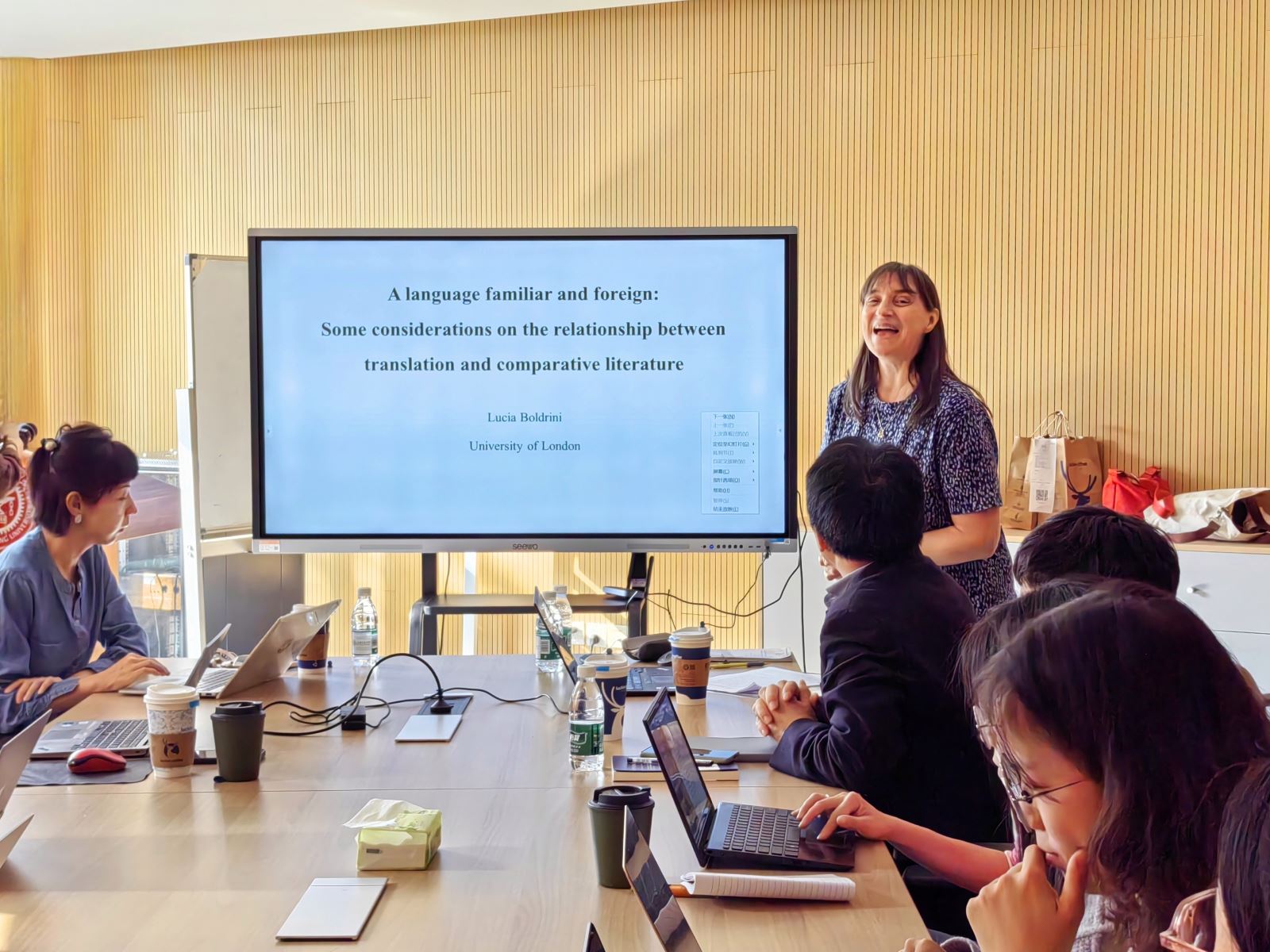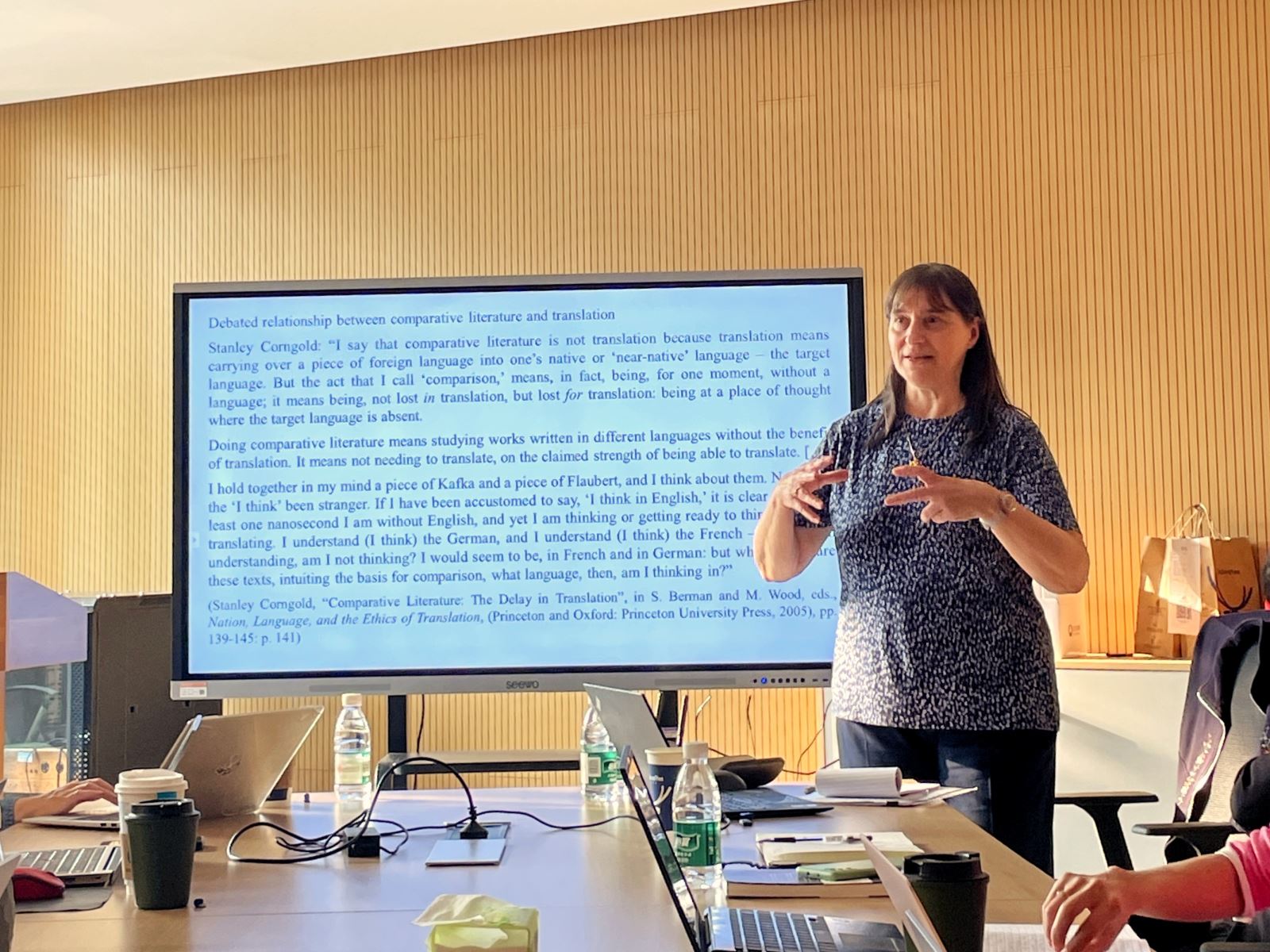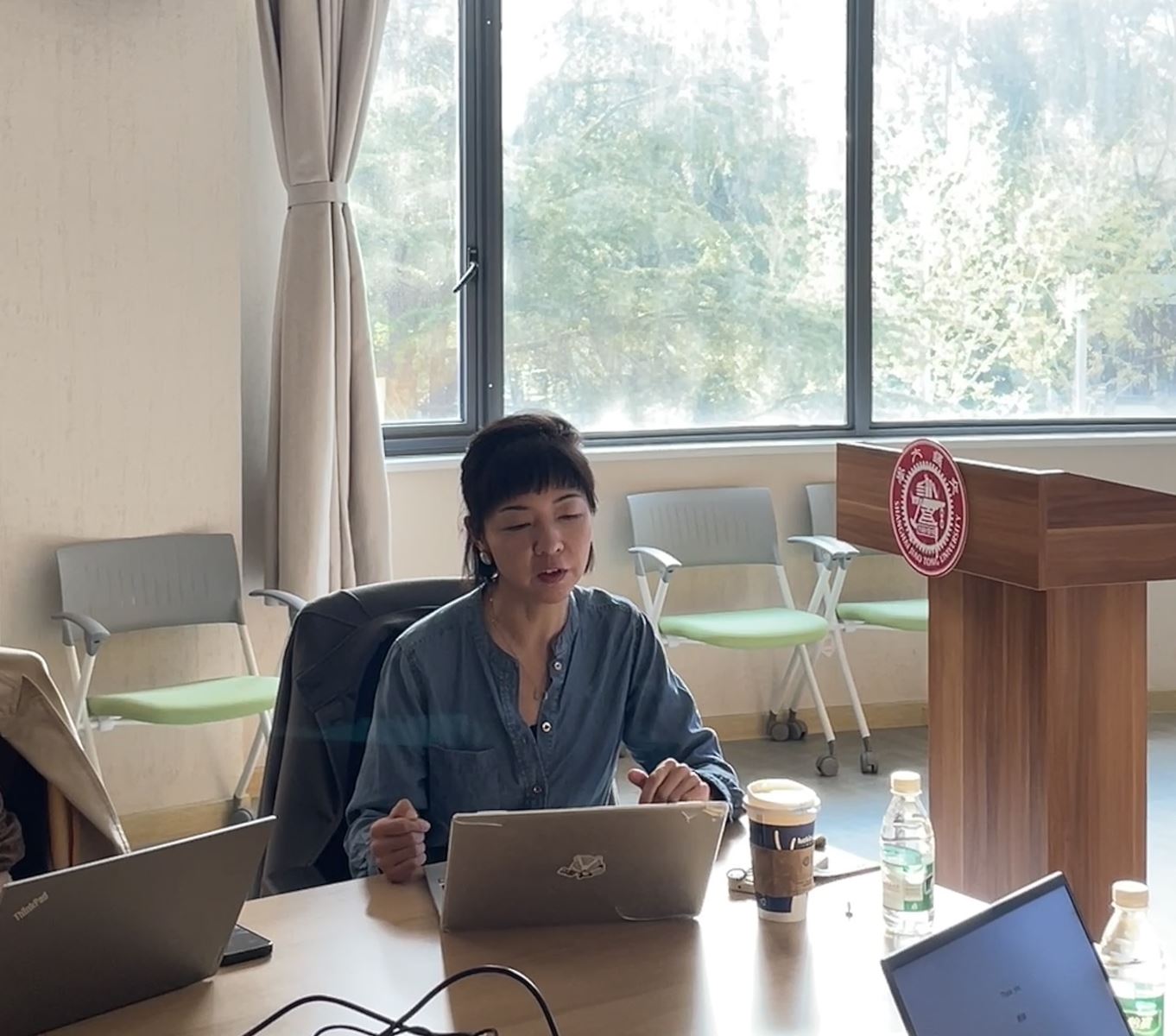Professor Lucia Boldrini of the University of London Was Invited to Give an Academic Lecture at the School of Foreign Languages
On the afternoon of November 21st, the 40th lecture of the Interdisciplinary Center for Narrative Studies at the School of Foreign Languages, Shanghai Jiaotong University was successfully held. Prof. Lucia Boldrini of the University of London was invited to give a lecture entitled "A Language Familiar And Foreign: Some Considerations on The Relationship Between Translation And Comparative Literature" to the teachers and students of the School of Foreign Languages. The lecture was hosted by Shanghai Jiaotong University Distinguished Professor Shang Biwu, teachers and students from different majors attended the lecture enthusiastically.

Lucia Boldrini revisited, from a historical perspective, how the intrinsic factors of literary language have influenced the disciplinary construction of translation and comparative literature and their interrelationships. She pointed out that although the principle of comparative literature is to conduct comparative studies while preserving the differences of the original language, it has always been inextricably linked to translation. On the one hand, translation and comparative literature are both language-mediated ablings: whether it is the absorption of ancient Greek philosophy by the Arab centuries-long translation movement, the contribution of machine-assisted translation to the international dissemination of literature, the expansion of the Italian vocabulary by the Divine Comedy, or the promotion of the exchange of works by Goethe's concept of "world literature", they all demonstrate that language and culture are inseparable. On the other hand, both of them use discourse as a power to control countries, nations, and cultures. Thus both show a kind of disabling: translation became a tool of cultural hegemony during the colonial period, and the introduction of world literature also squeezes the space for national literature's self-recognition and development to a certain extent. Therefore, at a time when the global multi-polar power is becoming more and more balanced, comparative literature should also pay attention to the study of its relationship with translation, not only recognizing the power of the two to promote cross-cultural exchanges, but also being alert to the obstacles to the construction of identities and international cooperation caused by the bias of culture-centrism and nationalism contained in both, so that the analysis of the power of discourse can be carried out in the whole process of the study of comparative literature.

In the talk session, Zheng Jie, professor of Guangdong University of Foreign Studies, and Lucia Boldrini discussed whether comparative literature is a principle, methodology, or theory. According to Boldrini, comparative literature is essentially a kind of identity, which points to the different choices people make when facing multiculturalism. However, if one applies this criterion to literary analysis, then it can also be regarded as a literary theory.

At the end of the lecture, Lucia Boldrini and the students and teachers of the School of Foreign Languages had a lively discussion on the content of the lecture. Shang Biwu summarized the lecture. The 40th lecture of the Center for Interdisciplinary Narrative Studies Lecture Series ended successfully.
